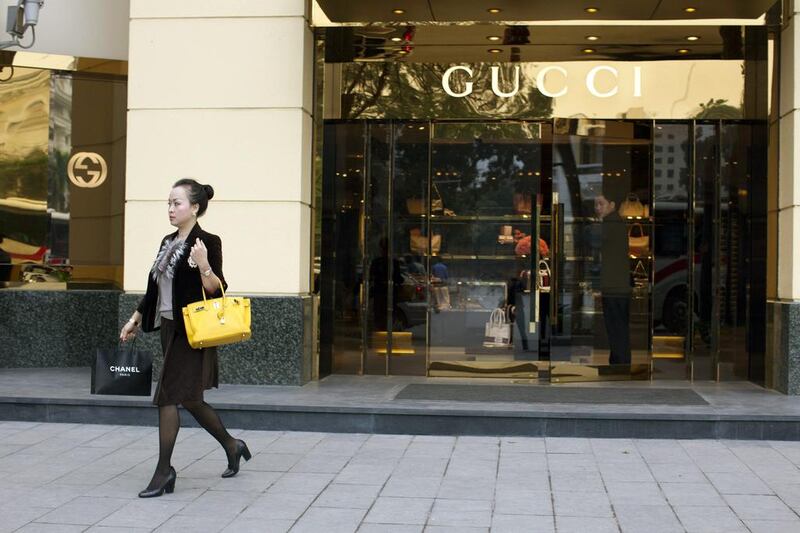Up until the 2008 financial crash only the most politically engaged people in developed countries would have recognised that they lived under an economic system called capitalism. It might have been a free-market economy (although with a strong element of state regulation) or a social market economy, where the state took steps to promote equality. In China it was different: there was state capitalism, an exciting hybrid, but that was thought to be unstable and unlikely to last.
Pure capitalism – with its echoes of a silk-hatted 19th century mill owner working his labourers to death – belonged to another age. In the early years of this century, policymakers seemed to have found the golden mean of growth without inflation – until it all collapsed in 2008 in a welter of bad debt hidden by bankers’ sleight of hand.
As the feeling has grown that the global economy is bust, the word capitalism has come back in the writings of economists, along with Karl Marx’s prediction that capitalism would sink.
The French economist, Thomas Piketty, captured the spirit of the age with his unlikely 2014 bestseller, Capitalism in the 21st Century, which argued that without government intervention wealth in advanced societies would be concentrated in the hands of fewer and fewer people. This seemed to explain how the top one per cent of Americans own more than the bottom 90 per cent. One year on, the pollster YouGov has conducted a seven-country survey into opinions on capitalism for the London-based Legatum Institute. The results, summed up by The Times as “Verdict on capitalism: unfair and corrupt”, do not make enjoyable reading for governments.
In all seven countries, people believe that capitalist economies cause the poor to get poorer. Big businesses, the respondents say, achieve success only through cheating, polluting the environment and exploiting corrupt links with cronies in government. Barely 10 per cent of respondents in the seven countries – Britain, Brazil, Germany, India, Indonesia, Thailand and the United States – believed that big business could be clean. In Germany, only 4 per cent thought so.
These results reflect some bad news: China’s stock market fall; the Volkswagen scandal, where one of the world’s most admired brands has admitted installing software in diesel engines to give a false reading during emissions tests; and a string of banks being fined for fixing interest rates.
Opinion polls are not revealed truth. It seems that a question including the word “capitalism” elicits a more negative response than one using “free enterprise”. If free enterprise signifies creating jobs through individual effort, capitalism is inseparably glued to the word “crony”.
The New York Times reported in August that fewer than 400 super-rich families have provided half of the US election campaign donations, then amounting to $388 million (Dh 1.4 billion). No wonder that an outsider who eschews contributions from corporate donors, such as the avowed socialist contender for the Democratic presidential nomination, senator Bernie Sanders, has attracted support.
In the world where social media has exposed sins which used to be kept quiet, it is not surprising that that the capitalism should have a bad name and the Marx’s doctrine of “immiseration” – as capital increases, the situation of the worker gets worse – is taken on trust.
But figures from the World Bank tell a different story. The number of people living in extreme poverty is likely to fall to under 10 per cent this year, and it believes it is possible to end extreme poverty by 2030. One can always argue with the definition of “extreme poverty” but there is no doubt that poverty has been reducing for a quarter of a century.
Much of this is due to rising living standards in China, but also to targeted aid programmes elsewhere. In Brazil, for example, the lives of 50 million people have been improved by the bolsa familia, a conditional family allowance paid to a mother provided her children attend school and are vaccinated.
Behind the headline results, there are some intriguing snapshots. Americans are leaders in pessimism when asked if the next generation will be richer, safer and healthier, a proposition endorsed by only 14 per cent of them. The American dream, with its well-paid and secure industrial jobs, has fallen victim to globalisation and the advance of technology.
There is a clear divide between developed and developing countries when it comes to the future. The British, Americans and Germans think they are entitled to keep what they have and do not believe they should take a pay cut to guarantee a job. In Brazil, India, Thailand and Indonesia, they are more willing (or more accustomed) to tightening their belts.
Similarly, people in developing countries are far more likely to agree that what is good for business is good for society, with India in the lead, reflecting a belief that job creation, not government assistance, is the only hope for the poor. As for the rich countries, the people seem more concerned about the negative effects of business than job creation.
Surprisingly, inequality emerges as a minority concern for western intellectuals, not a top priority. In all seven countries, a majority want their governments to focus on creating jobs rather than squeezing the super-rich.
In sum, the world’s reserves of hope are among the poor, while the mood of the rich countries is of nostalgia for the good times and fear of losing what they have.
There is a clear need to end the connection between wealth and political power by which political donations dominate electoral cycles. So long as there is cronyism, capitalism will remain a dirty word, even if for most of the world’s population, business is the only path to a more secure future.
Alan Philps is a commentator on global affairs
On Twitter: @aphilps





